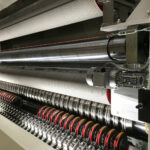The U.S. Department of Agriculture (USDA) announced that nearly $10 million is being invested in forest nursery and native seed partnerships, thanks to funding from President Biden’s Bipartisan Infrastructure Law.
Of the total funding, $4.5 million is being invested in twenty-nine facilities from states, U.S. Island territories and commonwealths to modernize forest nurseries and $5.3 million will help increase native seed collection and native plant availability to restore and support resilient ecosystems on national forests and grasslands.
These investments help build capacity across public and private lands to meet mounting reforestation demands and complement the recently announced $35 million investment in Forest Service nurseries in support of the National Forest System Reforestation Strategy.
“As forests across the nation are confronted by the climate crisis, wildfire, natural disasters, and insect and disease outbreaks, it is critical to support nurseries and help them meet the demand for seedlings to restore healthy, resilient forests,” said Agriculture Secretary Tom Vilsack. “The Biden-Harris administration is making a forward-thinking investment in the nation’s reforestation pipeline and ensuring we have the capacity we need to restore the healthy and resilient forests that we all treasure.”
According to The Nature Conservancy’s Reforestation Hub, it’s estimated that up to 146 million acres of land in the U.S. could benefit from reforestation. This translates to a need for more than 75 billion trees. At their current level of production — about 1.4 billion annually — it would take more than 50 years for nurseries to meet that need.
In addition, many areas also need more than just tree seedlings. Especially in post-fire landscapes, restoration requires a variety of native grasses, flowers and shrubs. The Forest Service also provides direct technical assistance to improve reforestation, restoration and conservation. This technical assistance extends to governments, communities and organizations across public and private lands, both in the U.S. and around the world.
The facilities, programs and partnerships selected this year will receive funding that can be used to purchase new equipment, replace aging infrastructure, adopt new methods to boost nursery productivity and more. Working closely with several tribes, the Forest Service will provide funding to assist in modernizing existing nursery programs.
“Across the nation, state tree seedling nurseries produce about 123 million seedlings annually and can yield much more. This critical new program will allow states to support the growing need for reforestation, now and in the future. The values created by tree planting, including resilient landscapes, human health, and economic opportunities, have great benefit for all of us,” said Kacey KC, Nevada State Forester and President of the National Association of State Foresters.
“American Forests is thrilled to see the Bipartisan Infrastructure Law in action through these investments in forest nurseries,” said Brian Kittler, Vice President for Forest Restoration at American Forests. “As critical infrastructure, forest nurseries help forests bounce back from severe wildfires, diseases, and other disturbances. Production at state and Tribal nurseries has been in decline for years. With upgrades and increased capacity, these nurseries can better provide the diversity of seedlings that tribes and small private landowners need to reforest areas for the biodiversity, water, economic, and cultural values these landscapes provide.”
“The Chicago Botanic Garden is very pleased to see greater investment in native seed collection through the Bipartisan Infrastructure Law,” said Kayri Havens, Senior Scientist and Director of Ecology and Conservation. “The insufficient supply of native seed of known provenance has been identified as a major barrier to successful ecological restoration by the National Academies of Science, Engineering and Medicine. We have worked with several federal agencies, including the USDA Forest Service, to recruit, train and hire over 1700 seed collectors through our Conservation and Land Management Intern Program. These partnerships are simultaneously developing a cadre of seed collection professionals and getting native seed into the development pipeline to meet our nation’s restoration needs.”
“The Arbor Day Foundation applauds the Forest Service for this smart, targeted investment in America’s reforestation pipeline,” said Dan Lambe, President and Chief Executive, the Arbor Day Foundation. “With support from private donors and reforestation partners, the Arbor Day Foundation plans to plant 40 million trees in the coming year. Investments in state nursery capacity are fundamental to ensuring successful reforestation projects that protect our climate.”





